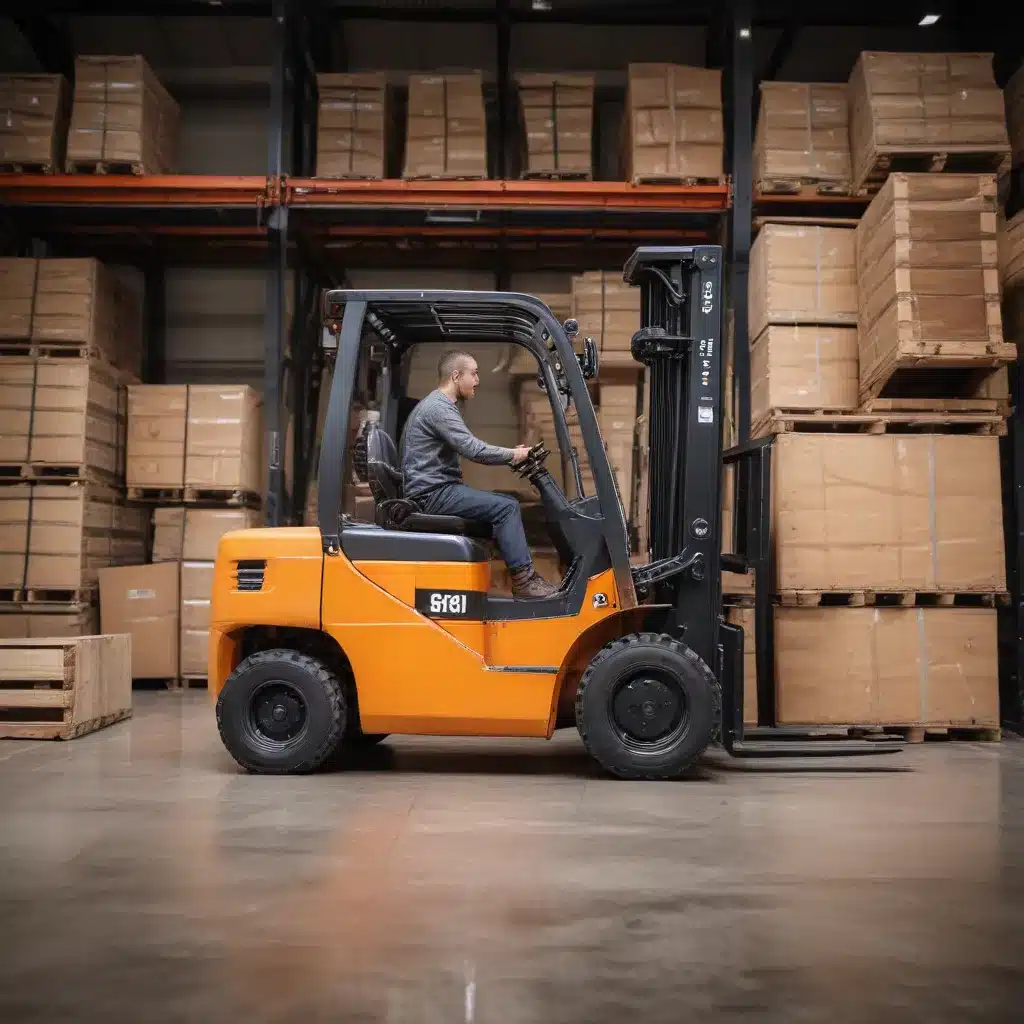
As a seasoned industry expert in forklifts, warehousing, and logistics, I’ve witnessed firsthand the profound impact that equipment procurement decisions can have on a company’s corporate social responsibility (CSR) and sustainability initiatives. In this comprehensive article, we’ll explore the forklift leasing vs. buying debate, delving into the nuanced considerations that can support your organization’s environmental, social, and governance (ESG) objectives.
Aligning Forklift Acquisition with CSR and Sustainability Priorities
In today’s business landscape, stakeholders are increasingly demanding that companies prioritize CSR and sustainability. Executive Order 14057, “Catalyzing Clean Energy Industries and Jobs Through Federal Sustainability,” underscores the growing importance of sustainable practices for government agencies and their suppliers. Similarly, leading organizations like Lululemon have made bold commitments to reduce their environmental impact and promote social responsibility throughout their operations and value chain.
As you evaluate your forklift acquisition strategy, it’s essential to align your decision-making with these evolving CSR and sustainability priorities. The choice between leasing or buying forklifts can have far-reaching implications for your organization’s ability to meet its ESG goals.
The Environmental Impact of Forklift Ownership
One of the primary factors to consider is the environmental impact of your forklift fleet. Leasing models often provide access to the latest, most energy-efficient technologies, which can contribute to reduced greenhouse gas emissions and improved energy efficiency. Furthermore, leasing arrangements may include provisions for proper disposal or recycling of equipment at the end of its useful life, ensuring responsible end-of-life management.
Conversely, purchasing older or less fuel-efficient forklift models may hamper your efforts to meet carbon reduction targets and circular economy objectives. By incorporating life cycle assessment (LCA) principles into your decision-making, you can better understand the environmental impact of your forklift fleet and make more informed choices.
Social Responsibility and Worker Safety
Forklift operations also have a direct impact on worker safety and well-being, which are essential components of CSR. Leasing models may offer enhanced safety features, operator training programs, and maintenance services that can help protect your workforce and promote a culture of safety within your organization.
Furthermore, reputable forklift leasing providers often have robust policies and practices in place to uphold labor standards and human rights, aligning with your organization’s social responsibility commitments. This can be particularly crucial in the wake of the COVID-19 pandemic, where employee welfare has become an even more pressing concern.
Balancing Financial and Sustainability Considerations
While the environmental and social benefits of forklift leasing are compelling, it’s also essential to evaluate the financial implications of your equipment acquisition strategy. The Global Reporting Initiative (GRI) and Sustainability Accounting Standards Board (SASB) have developed comprehensive frameworks to help organizations navigate the intersection of financial and sustainability performance.
By carefully analyzing the total cost of ownership (TCO) for both leasing and purchasing options, you can make an informed decision that balances your short-term budgetary needs with your long-term sustainability goals. This holistic approach can help you identify the most cost-effective solution that aligns with your overall corporate responsibility objectives.
Leveraging Forklift Leasing to Enhance Sustainability
Forklift leasing can be a powerful tool in your sustainability toolbox, offering several advantages that can support your CSR initiatives:
-
Fleet Optimization: Leasing allows for regular fleet upgrades, ensuring your forklifts remain technologically advanced and energy-efficient, reducing your environmental footprint over time.
-
Maintenance and Responsibility: Leasing providers often assume responsibility for comprehensive maintenance, repairs, and end-of-life management, alleviating the burden on your internal resources and promoting proper disposal or recycling.
-
Flexibility and Scalability: Leasing arrangements offer greater flexibility to adapt your forklift fleet to changing business needs, which can be especially beneficial as you navigate growth or operational changes.
-
Alignment with Sustainability Reporting: The data and insights provided by leasing providers can help you accurately track and report on key sustainability metrics, such as energy consumption, emissions, and resource utilization, strengthening your ESG disclosures.
Practical Considerations for Forklift Leasing
When evaluating forklift leasing as an option, there are several practical considerations to keep in mind:
- Lease Term and Mileage Limits: Understand the lease duration and any restrictions on usage, as these can impact your ability to maximize the equipment’s lifespan and align with your sustainability goals.
- Maintenance and Servicing: Ensure the leasing provider’s maintenance and servicing offerings meet your operational needs and support your safety and environmental objectives.
- End-of-Lease Options: Explore the available options for equipment return, renewal, or purchase at the end of the lease term, as these can influence your long-term sustainability planning.
- Vendor Reputation and Reliability: Prioritize leasing providers with a proven track record of environmental stewardship, social responsibility, and financial stability to ensure the longevity of your partnership.
By carefully weighing these factors, you can identify the forklift leasing solution that best supports your corporate social responsibility and sustainability goals.
Conclusion: Embracing Forklift Leasing for a Sustainable Future
As you navigate the forklift leasing vs. buying decision, it’s clear that the choice can have a significant impact on your organization’s ability to meet its CSR and sustainability commitments. By prioritizing environmental impact, worker safety, and financial considerations, you can leverage forklift leasing as a strategic lever to drive your sustainability initiatives forward.
Ultimately, the path to a more sustainable future requires a holistic approach that integrates equipment procurement, operational optimization, and stakeholder engagement. By aligning your forklift acquisition strategy with your broader corporate responsibility goals, you can position your organization for long-term success and contribute to a more sustainable, equitable, and resilient business landscape.
For more insights and practical tips on forklift reviews, safety guidelines, maintenance, and industry trends, be sure to explore the Forklift Reviews blog.

